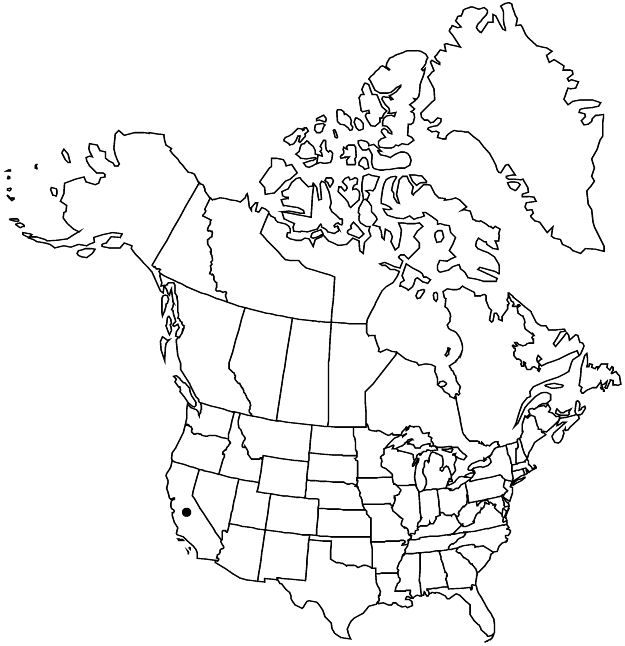Difference between revisions of "Fremontodendron decumbens"
Brittonia 17: 382, figs. 1–4.
imported>Volume Importer |
imported>Volume Importer |
||
| Line 59: | Line 59: | ||
|publication year= | |publication year= | ||
|special status=Conservation concern;Endemic | |special status=Conservation concern;Endemic | ||
| − | |source xml=https:// | + | |source xml=https://bitbucket.org/aafc-mbb/fna-data-curation/src/2e0870ddd59836b60bcf96646a41e87ea5a5943a/coarse_grained_fna_xml/V6/V6_810.xml |
|subfamily=Malvaceae subfam. Bombacoideae | |subfamily=Malvaceae subfam. Bombacoideae | ||
|genus=Fremontodendron | |genus=Fremontodendron | ||
Latest revision as of 22:23, 5 November 2020
Plants decumbent, to 10+ dm, usually broader than high. Leaf blades 15–95 × 9–61 mm, base moderately to notably cordate. Pedicels 10–27 mm. Flowers 20–50 mm diam. (pressed); sepals usually coppery to orange, rarely yellow, gland/pit borders setose. Seeds carunculate, hairy. 2n = ca. 98.
Phenology: Flowering May.
Habitat: On rocks in pine woodlands, chaparral borders
Elevation: 400–800 m
Discussion
Of conservation concern.
Fremontodendron decumbens is known with certainty only from El Dorado County.
Differences between plants treated here as Fremontodendron decumbens and F. californicum are primarily in habit, pedicel length, and sepal color (W. M. Kelman 1991). The two may be taxonomically indistinct at any rank.
Fremontodendron decumbens is in the Center for Plant Conservation’s National Collection of Endangered Plants.
Selected References
None.
